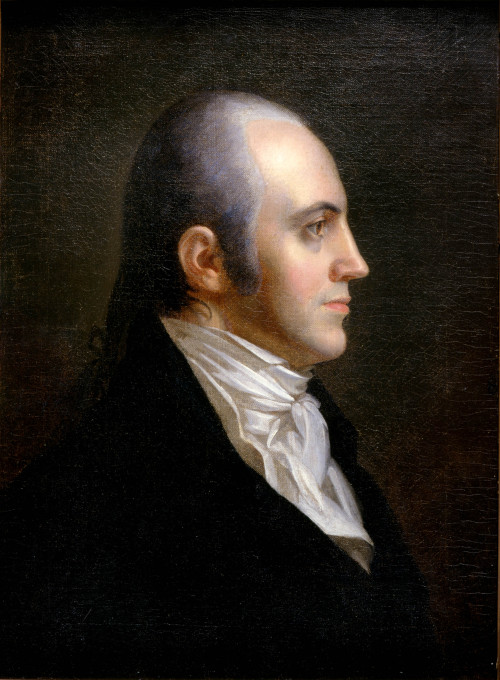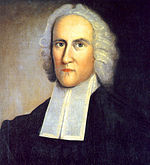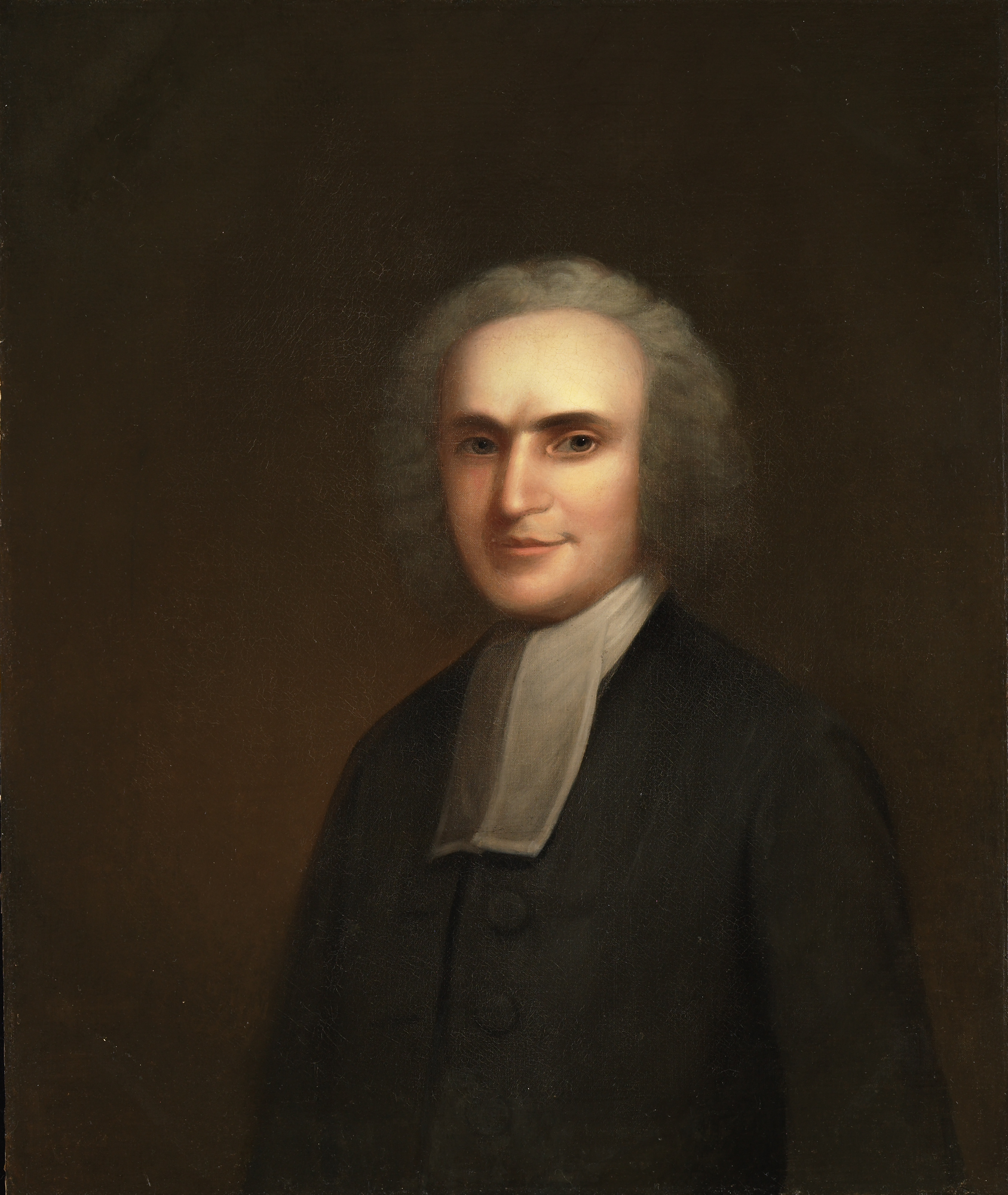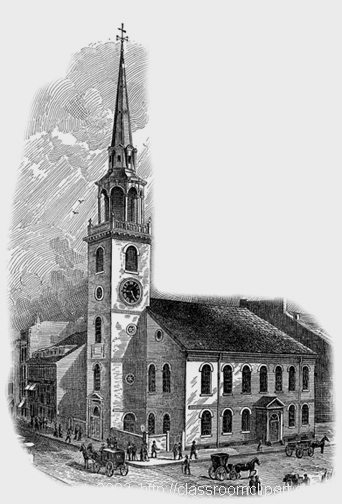At age two, young Aaron suffered the death of his father and mother (in that order) in the space of a year. His grandfather took him in and raised him to be a radical Calvinist and anti-British. Burr was immensely traumatized when Edwards was killed in a carriage accident in 1765; Burr was just 9, and Edwards was 62. Burr was then sent to live with Philip Jonas of Boston, a close friend of the late Edwards and a Patriot radical. At age 19 in 1775, Aaron Burr II joined the Continental Army as a junior-grade minister and infantryman. He served as a colonel under George Washington during the brutal winter at Valley Forge and was the officer in charge of "the Gulf," an isolated pass commanding approach to the camp. After a series of series of harrowing attacks by British scouts and sharpshooters which involved Burr nearly getting killed every time, his men started to say he was "blessed by the Lord." Washington himself gave him a personal thanks and multiple awards and medals, and told him, "God has great things planned for you, Colonel Burr."
When the troops began demoralizing that winter, Burr took out his Bible (the copy his grandfather had used during his famous
Sinners in the Hands of an Angry God sermon) and proceeded to "deliver such a fiery oratory that we felt thawed from the frostbite," wrote one officer named Benedict Arnold (who later took a bullet for Burr in the head and died).
When the war was over, Burr began showing symptoms of a head injury from being too close when a cannonball hit. A doctor offered him treatment, but he refused, claiming God would heal him. Burr retired from the army and became an ordained minister and later was elected a Member of Congress for New York (1795), and was one of the Hawks who pushed for what became the Franco-American War (1799-1800) which resulted in the death of Washington and ushered in the Collapse of the Old United States.
But it was the period of 1798-1799 that were most important in Burr's life. His head injury is likely the cause of a series of long dreams he had where he "saw John Calvin and his grandfather Jonathan Edwards" in Heaven.
"And they and the voice of the Lord said unto me, 'And these signs shall follow them that believe: In my name shall they cast out devils; they shall speak with new tongues. They shall take up serpents; and if they drink any deadly thing, it shall not hurt them; they shall lay hands on the sick, and they shall recover. Behold, I give unto you power to tread on serpents and scorpions, and over all the power of the enemy: and nothing shall by any means hurt you.'" Burr experienced an epiphany. He claimed that what he had done at Valley Forge and what the men there had said about him was true, that he specially chosen by God for a special purpose. Burr wrote in late 1798 to his close friend and Republican Union founder Willard Crawford,
"I have formulated plans for a new church. It shall be located in Philadelphia, as close to the Congress as I can, and perhaps near to Articles of Confederation Hall. This way, in betwixt doing the Lord's Work at the pulpit, I shall do the Lord's Work at the Congressional Chambers. These verses read to me in the dream I wrote to you about last time have some special importance I am sure. Wish me well and please pray for my success."
Burr's Fundamentalist Church
Burr's "new church" was actually that and also a new
denomination. Branded American Fundamentalism, the church was completed in mid-1799. His ferocious and red-faced rhetoric converted many immediately, and raised the ire of many others. Ignoring claims he was behaving like a cult leader, Burr continued to preach under the Freedom of Denomination Clause of the Articles of Confederation. He ended up converting several other Congressmen, drawing further attention. A newspaper pundit in Boston claimed that:
"The Madman Burr continues to propagate his blasphemy throughout the fair city of Philadelphia. He pretends to be his grandfather, like he's a boy playing soldier, but his sheer lunacy is nothing like the great minister of old, and his falsehoods are not nearly as innocent as a lad playing at muskets. Believe this publication when we say this church is merely a flash in the pan, and his so-called followers are simply there for the entertainment of the spectacle and lunacy that is Colonel Burr."
Burr continued on, and by the time of the creation of the Republican Union, he had actually a sizable amount of followers in his pews. His ultra-patriotism and his friendship with Crawford kept opponents from going after him, and he became the Union's Second Chief Consul and Crawford the First. As Chief Consuls for the next few years (re-elected every year), Crawford and Burr helped shape the entire history of the Union. They are considered the only truly strong Consuls of the 19th Century, as the rest just muddled along and wielded almost no power of any sort and went in and out in two terms at most.
Burr's church by the time of his retirement from politics was a whopping amount, with at least 2,000 followers in the Philadelphia area alone. Up in his adopted home state of New York, he had built another church, called 2nd Fundamentalist Christian (with the Philadelphia branch being named simply Fundamentalist Christian), and it grew to a huge 8,000 members statewide. In 1820, all of the churches were re-branded as "American Fundamentalist Chirstian," each with its own number. It then began leaking over into his original of New Jersey, where several of his young deacons began orating at Princeton University, greatly upsetting the Calvinist professors there, to the point that they banned preaching by the "Burr Sect" on campus. Many in places that had not experienced a sermon by Burr had no idea what on earth could make it so appealing, but when a series of traveling revivals swept the nation, they found out sure enough. Burr and his deacons started off simple, appealing to the crowds in a friendly, folksy way. Then, they would start haranguing them, spewing hatred about Catholics, Deists, and immigrants. Then would come the appeal to their patriotism, hitting them with the impoverished state of the Union and with the "former glorious United States of America, an Empire that was destroyed by the Papist-sympathizing and traitors slave-whipping Southrons." By the end of the sermons, people sitting in the pews, weeping, screaming, and flying out of their pews in a seizure-like craze.
A number of the audiences would become so enthralled that, as one witness wrote in a diary,
"One middle-aged gentlemen in thick spectacles who had been screaming out and crying like a man-possessed in the fifth aisle down. This man had been going blind. Pastor-Colonel Burr simply raised his hand at him, and the man flew out into the aisle like the Lord had grabbed him by his cravat. The Reverend-Colonel struck his palm on the man's head once, and the man again went flying erratically down the aisle like his spirit had been smote from his body. It was amazing. This blind man could see again."
Later claims that the man was an actor were denied by the Fundamentalists.
The people attending became so convinced of his power that when he started the practice of holding snakes in church as a following of what "God" had told him in his dream years before, attendance dropped (as those not fully convinced or just there to watch became frightened), but then attendance
sky-rocketed. Crying out that,
"They shall take up serpents; and if they drink any deadly thing, it shall not hurt them; they shall lay hands on the sick, and they shall recover. Behold, I give unto you power to tread on serpents and scorpions, and over all the power of the enemy: and nothing shall by any means hurt you!", Burr's overpowering showmanship kept his services standing room only
The many people who rejected Burr said the reason for the seemingly "divine" power was nothing but a crowd effect, where those who
believed Burr held the power to "Slay them in the Spirit" were just simply
wanting Burr to have that power. John Jay wrote of Burr's Fundamentalists:
"This is nothing but boulderdashery and mind-trickery. I have attended these services and not once did I come to the belief that Aaron Burr, of all people, was casting the Lucifer out of anyone. I noticed he never attempted to 'slay' any of my family's spirits or my own, most likely because he knows we aren't a pack of uneducated ignorant fools of the type who are amazed when a trickster pulls a silver eagle out of someone's ear. This madman would never have been Second Chief if it wasn't for Crawford being his personal friend. I dread to see where this sect goes. I swear, if the people of this nation are so willing to believe this low-brow demagogue and follow him in the handling of venomous snakes and the other assorted insane practices, then I fear for the Union's future. The mentality of a mob bowing down to their leader is the mentality of men who will do anything for that leader."
In 1839, Aaron Burr died peacefully in his bed at age 83, but he had trained a large number of ministers to carry on his work.
In 1819, a 24 year-old deacon took charge of a growing Fundamentalist church in Boston, and became by far the most important of these successors, tied only with Burr's son Theodore. His name was Edward Everett, and he was considered the finest orator in Boston. In 1820, several "Irish-Catholics" attacked during a sermon, killing five and burning down 30% of the church. Everett and Burr claimed it proof of the inferiority and murderous tendency of Irish and Papists, and went about "building the chapel larger and grander than before." It was a huge building, and when Aaron Burr died in 1839, an obelisk was constructed outside called the Burr Monument. Measuring in at
555 feet, it was the tallest stone structure in the entire world. In the church itself, huge rows of stained glass depicted scenes from the life of Jonathan Edwards and of Burr's, especially those of Burr heroically standing upright in a hail of British led at Valley Forge. One depicted his close friend Benedict Arnold ascending into Heaven.
The Burr Monument in Autumn by Andrew Gibbs (1869)
In addition to having a colossal Egyptian monument dedicated in his name, Burr's self title of "Reverend-Colonel" was held by every following head of the American Fundamentalist Church. The title "Colonel" was turned into an award similar to the European title of count. Charles Goodyear was the first man to become an American Colonel. He was also a choir boy in the Boston church when he was 10.
Theodore Burr (1783-1867), Aaron's only son, would go on to more politics than preaching, but was, for a short time, "Reverend Colonel Burr II," before the position passed to Everett. Theodore's son Aaron Burr III (1819-1909) would never hold the title, and instead would become a high-ranking government official. Towards the middle of the 1800s, many citizens grew wary of American Fundamentalists overrunning the government offices, and their suspicions of the group's political plots were only strengthened when the Union Army adopted "Onward Christian Soldiers" as their song. "Onward Christian Soldiers" was Aaron Burr's favorite hymn.
Everett revived the practice of traveling revivals and went west himself to the Ohio region of Pennsylvania. It was there, near the small hamlet of New Rumley, that Everett would have the pleasure of converting a blond-haired young man by the name of George Armstrong Custer.
https://www.youtube.com/watch?v=B9vkGf1vO3o 





